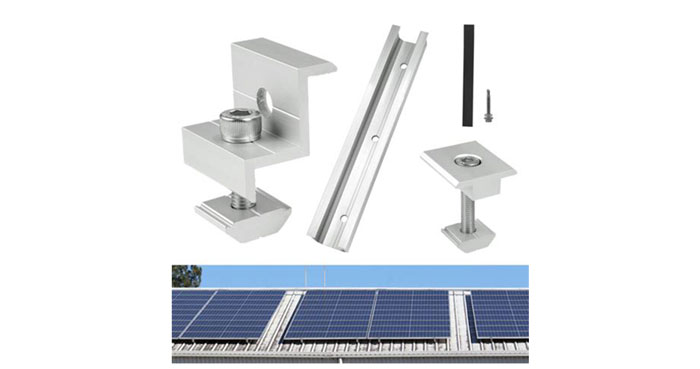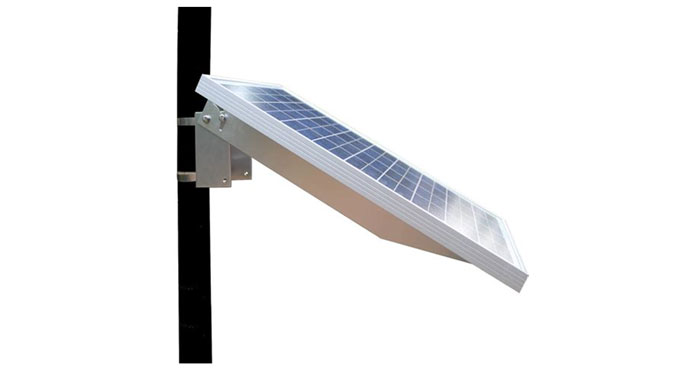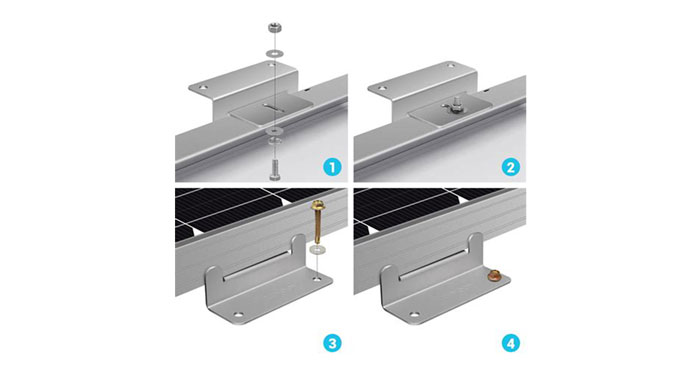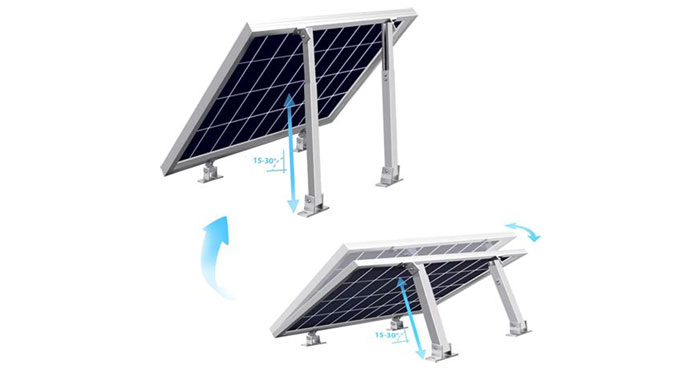Solar panel brackets are essential components in photovoltaic (PV) systems, providing the necessary support and orientation for solar panels to maximize energy capture. Proper selection and installation of these brackets are crucial for the efficiency, safety, and longevity of a solar energy system.
Types of Solar Panel Brackets
1. Roof-Mounted Brackets
These brackets are designed to affix solar panels directly to the roofs of buildings. They are tailored to accommodate various roof types, including:
-
Shingle Roofs: Utilize flashing and mounts that integrate with shingles to prevent leaks.
-
Tile Roofs: Require specialized hooks or brackets that lift tiles to secure the mounting without causing damage.
-
Metal Roofs: Often employ clamps that attach to standing seams, eliminating the need for drilling.
Here’s an example of a roof-mounted bracket system:

2. Ground-Mounted Brackets
Ideal for installations where roof mounting isn't feasible. These systems are installed at ground level and can be adjusted for optimal tilt and orientation. They are particularly useful for large-scale installations or in areas with ample land space. Ground mounts can be secured into the ground or use ballasted systems that rely on weight to hold the structure in place.

3. Pole-Mounted Brackets
These brackets support solar panels on poles, either at the top or side. They are commonly used for smaller installations, such as powering remote equipment or lighting. Pole mounts can be designed to hold single or multiple panels and can be adjusted for tilt and orientation.

4. Adjustable Tilt Brackets
These allow for manual adjustment of the panel's angle to optimize solar exposure throughout the year. Adjustable brackets are beneficial in regions with significant seasonal variations in the sun's position.

Installation Considerations
-
Structural Integrity: Ensure that the mounting surface (roof or ground) can support the weight and load of the solar panels and brackets.
-
Orientation and Tilt: Position panels to face the optimal direction (typically true south in the Northern Hemisphere) with an appropriate tilt angle to maximize solar energy absorption.
-
Weather Resistance: Use brackets made of durable, corrosion-resistant materials to withstand environmental conditions.
-
Compliance with Regulations: Adhere to local building codes and regulations, obtaining necessary permits before installation.









